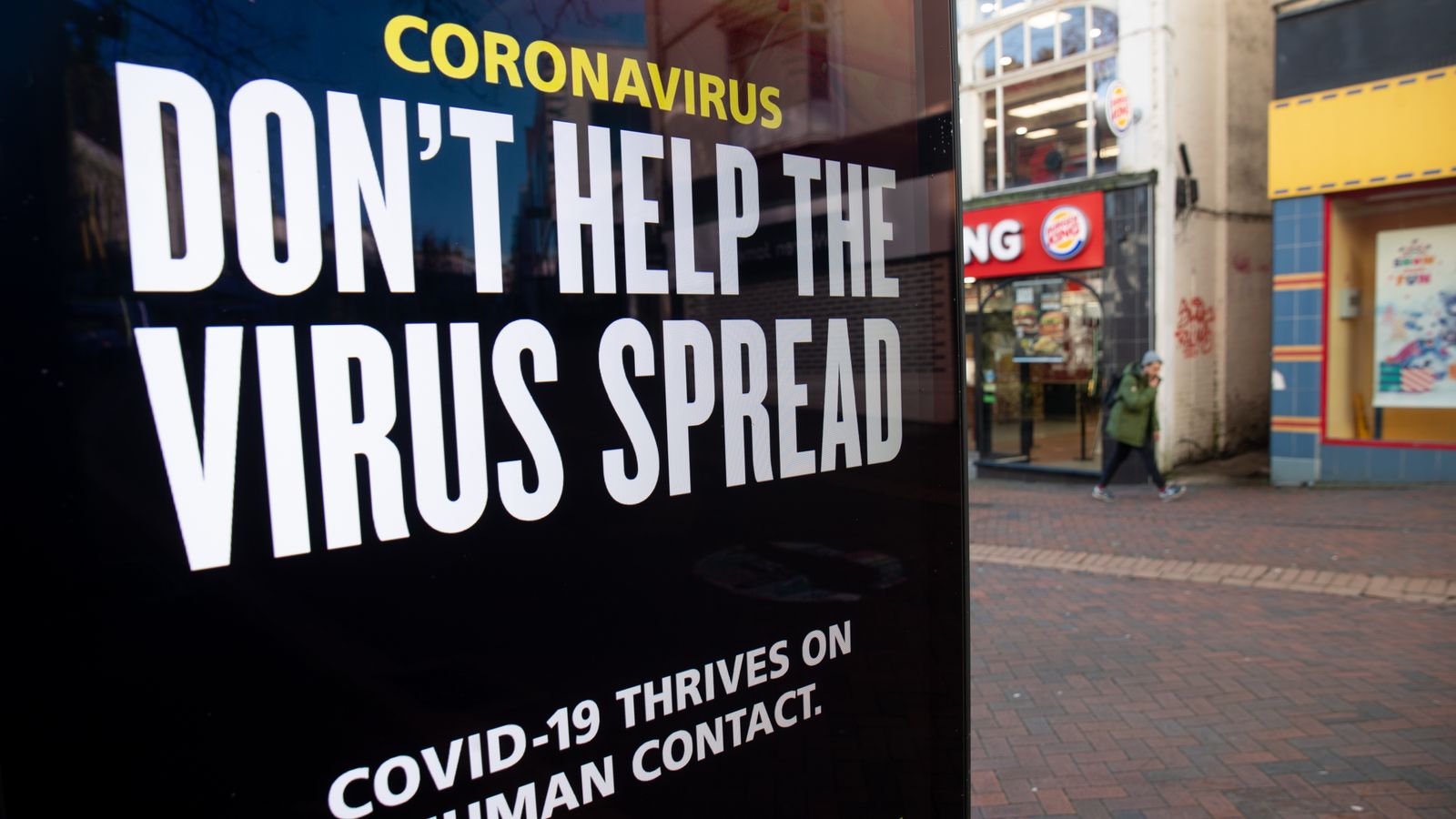The COVID-19 variant that was first identified in the UK may be more deadly than the original virus, the prime minister has warned.
At the Downing Street news conference on Friday, Boris Johnson said: “There is some evidence that the new variant may be associated with a higher degree of mortality.”
Mr Johnson added: “All current evidence continues to show that the current vaccines remain effective against the old coronavirus variant and this new one.”
Live COVID news from UK and around the world
Sir Patrick Vallance, the government’s chief scientific adviser, said with the initial variant that out of a 1,000 people over 60 infected with it, 10 would die.
With the UK variant, the available data suggests that 13 or 14 people out of 1,000 from the same age group would be expected to die, he added.
However, he said there was less certainty about the vaccines’ efficacy against those which had appeared in other countries.
“We are more concerned that they have certain features that they might be less susceptible to vaccines,” he said.
First identified in Kent, the UK variant is thought to be more than 70% more transmissible.
England and Scotland announced new restrictions on 4 January to stem a surge in coronavirus fuelled by the variant, which has led to record numbers of daily deaths and infections this month.
Earlier, the government said a further 1,401 people had died within 28 days of testing positive for COVID-19 as of Friday, bringing the UK total to 95,981.
Separate figures published by the UK’s statistics agencies for deaths where COVID-19 has been mentioned on the death certificate, together with additional data on deaths that have occurred in recent days, show there have now been 112,000 deaths involving the virus in the UK.
The government also said that, as of 9am on Friday, there had been a further 40,261 lab-confirmed cases of coronavirus in the UK.
It brings the total number of cases in the UK to 3,583,907.
Latest estimates from the Department of Health (DoH) suggest the number of new COVID-19 infections was shrinking by between 1% and 4% a day.
And the Science and the Scientific Advisory Group for Emergencies (SAGE) has said the coronavirus R number in the UK has fallen sharply since last week.
The R, which refers to the number of people that an infected person will pass COVID-19 on to, is between 0.8 and 1 across the UK.
However, the Office for National Statistics estimated that the prevalence overall remained high, with about one in 55 people having the virus.
“Cases remain dangerously high and we must remain vigilant to keep this virus under control,” a spokesman for the DoH said.
“It is essential that everyone continues to stay at home, whether they have had the vaccine or not.”
This was a message backed up by the prime minister who said: “We really can’t begin to consider unlocking until we’re confident that the vaccination programme is working, until we’re confident that we don’t have new variants or changes in our understanding of the virus…
“I think the most important thing is we’ve got to be in a position where the rate of infection of the virus is not still so high, and it’s very high right now.
“So, for unlocking just to lead to another big rebound, I think that would be the wrong thing, the wrong way, to approach this.”

